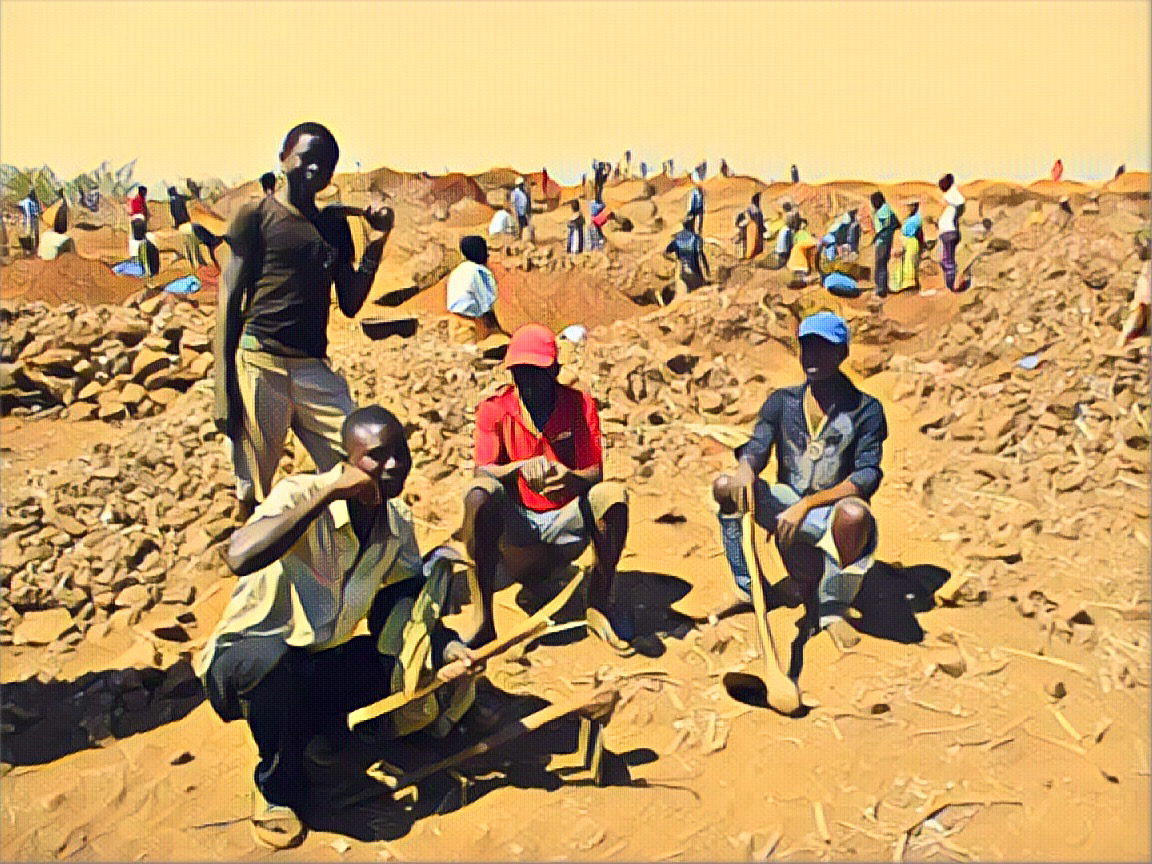Zimbabwe is sitting on a treasure trove of lithium, a key ingredient in the batteries that power electric vehicles, smartphones, and other devices. The southern African nation has some of the world’s largest hard-rock lithium deposits, attracting over $1 billion of investment from Chinese mining companies in recent years.
But the lithium boom has a dark side: it is luring children out of school and into the mines, where they work long hours for low wages, risking their health and safety. Some of them are as young as 12 years old.
A lifeline or a trap?
One of them dropped out of secondary school last year after his parents, both unemployed, could not afford the $40 tuition fee for that term. He lives in Majere, a village near the Sabi Star mine, one of the largest lithium projects in the country.
“My family was struggling to make a living,” he said, “I remember going to school in torn shoes, school fees going unpaid for several terms, and I could not afford a simple lunch. The mine in our area came at the right time.”
He earns around $250 per month, working as a laborer at the mine, clearing the site, loading trucks, and sorting ore. He says he is happy to provide for his family and pay school fees for his four younger siblings.
But he also admits that he misses school and his friends. He says he has no plans to resume his education, even though he knows that mining is a risky and unstable job.
“There is no way I will ever think of going back to school,” he says. “I have already established my family lifeline. Now I am able to provide. I even pay school fees for my siblings.”
A nationwide trend
Across Zimbabwe, thousands of children have left school to work in mines, fields, and factories, driven by poverty, hunger, and lack of opportunities.
According to the United Nations Children’s Fund (UNICEF), more than 1.2 million children in Zimbabwe are out of school, and many of them are engaged in child labor. The COVID-19 pandemic has worsened the situation, as schools were closed for most of 2020 and 2021, and families lost their incomes and livelihoods.
The mining sector, which accounts for about 10 percent of Zimbabwe’s gross domestic product (GDP), is one of the main sources of child labor in the country. Besides lithium, children also work in gold, diamond, chrome, and coal mines, often exposed to hazardous chemicals, dust, noise, and violence.
In some cases, children are relocated with their families to make way for mining projects, without proper consultation or compensation. In other cases, they are recruited by middlemen or traffickers who promise them good wages and living conditions, but end up exploiting them.
A call for action
Child rights activists and experts say that the government and the mining companies have a responsibility to protect children from the harmful effects of the lithium boom, and to ensure that they have access to quality education and alternative livelihoods.
“It is the responsibility of the government to extend efforts that regulate and monitor mining activities across the country to avoid children taking part,” says Frank Nyasha Mpahlo, director of Green Governance Zimbabwe Trust, a non-governmental organization that advocates for environmental and social justice.
He adds that education “empowers communities” and gives children a better chance to escape poverty and achieve their potential.
The Ministry of Primary and Secondary Education says it is aware of the problem and is working to address it through various strategies, such as outreach programs, bursaries, and incentives for teachers and learners.
“As a ministry, we go out campaigning, encouraging learners to come back to school if they have left school for one reason or another,” says Taungana Ndoro, the ministry’s director of communications and advocacy.
“Though the chances provided by the mine seem lucrative, we always advise learners to invest in education first.”
Some of the mining companies operating in Zimbabwe have also pledged to support local communities and children’s education through corporate social responsibility programs and initiatives.
Max Mind Investments, the company that owns Sabi Star mine, said that it is planning to introduce a bursary scheme for underprivileged students to stay in school and complete their studies, but did not give further details.
Source: New Zimbabwe


